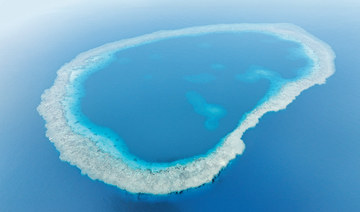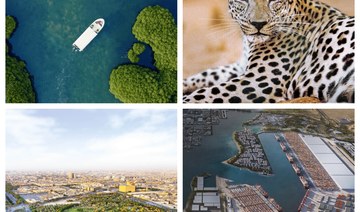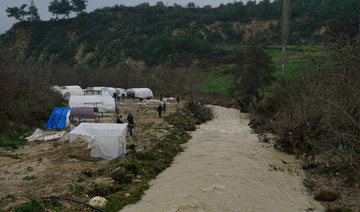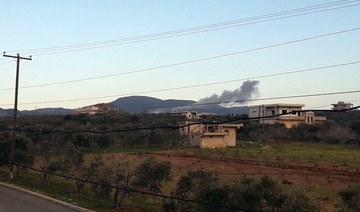KABUL: A Taliban assault on the Intercontinental Hotel in Afghanistan’s capital killed at least 19 people, including 14 foreigners, and pinned security forces down for more than 13 hours before the last attacker was killed on Sunday, with the casualty toll expected to rise.
The heavily-guarded luxury hotel is popular among foreigners and Afghan officials. Interior Ministry spokesman Najib Danish said the 19 killed included 14 foreigners and a telecommunications official from the western Farah province who was attending a conference.
“11 of the 14 foreigners killed were employees of KamAir, a private Afghan airline,” said Danish. KamAir also put out an announcement saying some of their flights were disrupted because of the attack.
Ukraine says one of its citizens was killed in the attack. Vasyl Kyrylych, a spokesman for the Ukrainian Foreign Ministry, announced the death of the Ukrainian citizen in a brief statement on Twitter, without providing further details. Afghan officials did not identify the foreigner killed in the attack.
Ten other people, including six from the security forces, were reported wounded and more than 150 people, including 41 foreigners, were rescued from the hotel, Danish said.
The Taliban claimed the attack, which began around 9 p.m. Saturday, saying five gunmen armed with suicide vests targeted foreigners and Afghan officials. Taliban spokesman Zabihullah Mujahid said the insurgents initially planned to attack the hotel Thursday night but postponed the assault because there was a wedding underway and they wanted to avoid civilian casualties.
The attack unfolded almost six years after Taliban insurgents launched a similar assault on the property, which is not part of the Intercontinental chain of worldwide hotels.
The Interior Ministry said a private firm assumed responsibility for securing the hotel around three weeks ago. The ministry says it is investigating how the attackers managed to enter the building.
During a press conference, Danish said that early investigations show that six insurgents entered the hotel from the northern side and stormed its kitchen. Two attackers were killed by Special Forces on the 6th floor of the hotel.
“We need to complete our investigation, but our initial reports show that the attackers were moved in to the hotel,” said Danish.
Mumtaz Ahmad, a provincial telecommunication employee for Helmand province who survivor the attack said “I was on my way from my room toward the reception, when I the elevator door opened, I saw two-armed suicide bombers. People were escaping and the attackers were firing at them.”
Afghan security officials confirmed that 34 provincial officials were gathered at the hotel to participate in a conference organized by the Telecommunication Ministry.
A fire broke out at the hotel as the fighting raged, and the sound of explosions could be heard throughout the standoff. Live TV footage showed people trying to escape through windows on the upper stories.
Capt. Tom Gresback, spokesman for NATO-led forces, said in a statement that Afghan forces were leading the response efforts. He said that according to initial reports, no foreign troops were hurt in the attack.
Neighboring Pakistan condemned the “brutal terrorist attack” and called for greater cooperation against militants. Afghanistan and Pakistan routinely accuse each other of failing to combat extremists along their long and porous border.
Afghan forces have struggled to combat the Taliban since the US and NATO formally concluded their combat mission at the end of 2014. They have also had to contend with a growing Daesh affiliate that has carried out a number of massive attacks in recent years.
In the northern Balkh province, insurgents burst into a home where several members of a local pro-government militia were gathered late Saturday, leading them outside and killing 18 of them, said Gen. Abdul Razeq Qaderi, the deputy provincial police chief. Among those killed was a tribal leader who served as the local police commander, he said.
In the western Farah province, a roadside bomb killed a deputy provincial police chief and wounded four other police early Sunday, according to Gen. Mahruf Folad, the provincial police chief.
The Taliban claimed both attacks.
In the western Herat province, a roadside bomb struck a vehicle carrying 13 civilians, killing all but one of them, said Abdul Ahad Walizada, a spokesman for the provincial police chief. No one immediately claimed the attack, but Walizada blamed Taliban insurgents, who often plant roadside bombs to target Afghan security forces.
Taliban attack on Afghan hotel ends after 13 hours, 19 dead
Taliban attack on Afghan hotel ends after 13 hours, 19 dead

Trapped US doctors are out of Gaza, White House says

- The Palestinian American Medical Association, a US-based non-profit, reported that its team of 19 health care professionals, including 10 Americans, had been denied exit from Gaza after their two-week mission
- Israel has killed more than 35,000 Palestinians in Gaza, mostly women and children, according to the health ministry in the Hamas-run territory
WASHINGTON: A group of US medical workers left the Gaza Strip after getting stuck at the hospital where they were providing care, the White House said on Friday.
Reports emerged earlier this week of American doctors being unable to leave Gaza after Israel closed the Rafah border crossing, including 10 from the US-based Palestinian American Medical Association, who had intended to leave after a two-week mission at the European Hospital in Khan Younis, a city near Rafah in southern Gaza.
On Friday, 17 American doctors and health care workers, out of a total of 20, got out of Gaza, White House national security spokesperson John Kirby told reporters.
“I can assure you that any of them that wanted to leave are out,” Kirby said.
A State Department spokesperson told Reuters that some of the doctors that had been stuck made their way to safety with assistance from the US Embassy in Jerusalem.
Three of the US doctors chose not to depart Gaza, a source familiar with the situation said, adding that the doctors who stayed behind understood that the US Embassy may not be able to facilitate their departure as it did on Friday.
The Palestinian American Medical Association, a US-based non-profit, reported that its team of 19 health care professionals, including 10 Americans, had been denied exit from Gaza after their two-week mission.
The organization said on social media on Wednesday that it had a more doctors waiting to enter Gaza to replace the workers trying to leave.
Israel seized and closed the Rafah border crossing between Gaza and Egypt on May 7, disrupting a vital route for people and aid into and out of the devastated enclave.
Gaza’s health care system has essentially collapsed since Israel began its military offensive there after the Oct. 7 cross-border attacks by Palestinian Hamas militants on Israelis.
Aid deliveries began arriving at a US-built pier off the Gaza Strip on Friday.
Coach Thomas Tuchel says he’s still leaving after talks on extending Bayern Munich stay fell through
Coach Thomas Tuchel says he’s still leaving after talks on extending Bayern Munich stay fell through

- “We found no agreement on further cooperation so the agreement from February remains in force,” he said
- In the three months since Bayern said Tuchel was leaving, they have tried and failed to sign a series of high-profile replacements
MUNICH: Thomas Tuchel says he is still leaving Bayern Munich after talks on extending his stay at the club fell through.
Bayern said in February that Tuchel would leave at the end of the season, but the coach said Friday that he held talks with the club on a “180-degree turn” that would have seen him stay after all.
“We found no agreement on further cooperation so the agreement from February remains in force,” he said.
In the three months since Bayern said Tuchel was leaving, they have tried and failed to sign a series of high-profile replacements.
Xabi Alonso is staying with Bayer Leverkusen after beating Bayern to the Bundesliga title, Tuchel’s predecessor Julian Nagelsmann signed an extension with the German national team, and Ralf Rangnick remains with Austria.
Bayern are without a trophy this season for the first time since 2012 after losing the Bundesliga title to Bayer Leverkusen, but Tuchel’s team were praised for reaching the Champions League semifinals before a narrow loss to Real Madrid.
There was also a petition from some Bayern fans calling on the club to keep Tuchel.
Strong European performances prompted the club to reach out to him in an attempt to persuade him to stay, the coach said.
“Above all, the feedback after Real Madrid over this last week was the basis to think again about the 180-degree turn, but we didn’t reach any agreement,” he said. “I don’t want to go into the individual points and the motivations behind them. That is behind closed doors and stays that way.”
There was tension last month after Tuchel said he had been insulted by comments from the club’s honorary president Uli Hoeness claiming the coach “doesn’t think he can improve” the team’s young stars.
Tuchel said at the time that Hoeness’ comments were “so far removed from reality” and added: “On the one hand it insults my honor as a coach, because I think we’ve shown as a coaching team for the last 15 years that young players, especially from the academy, always, always, always have a place with us in training and that they have a place on the field with their performances.”
Tuchel is heading into his last game with Bayern at Hoffenheim on Saturday with second place in the Bundesliga on the line. The injury list is as long as ever in a season when he has rarely had his first-choice team available.
Striker Harry Kane is undergoing treatment on a reported back injury, while Leroy Sané, Kim Min-jae, Kingsley Coman, Raphael Guerreiro and Jamal Musiala are also injured and Eric Maxim Choupo-Moting is unavailable with flu, Tuchel said. Right back Sacha Boey has been granted personal leave.
Bayern’s two-point advantage over third-place Stuttgart and superior goal difference mean that a draw with Hoffenheim — which is seventh and chasing European qualification — should be enough to guarantee second position. Stuttgart host Borussia Moenchengladbach.
How forest conservation is helping Saudi Arabia achieve its green objectives

- By planting trees and protecting forests, the Kingdom promotes biodiversity and sustainable development
- Forests provide habitats for hundreds of animal species and play a pivotal role in combating climate change
JEDDAH: With its low annual rainfall, much of Saudi Arabia’s vast landscape is covered by desert, broken by occasional oases. In its mountainous regions, valleys, and along its coastline, however, the Kingdom is home to multiple forest ecosystems.
Forests play a pivotal role in combating climate change by acting as carbon sinks — storing carbon both above and below ground, thereby extracting it from the atmosphere, where it would otherwise contribute to the greenhouse effect.
Their significance in climate change adaptation and mitigation is also underscored by their role in creating local microclimates, providing habitats for a wealth of biodiversity, locking in freshwater resources, and preventing flash floods, landslides, and soil degradation.
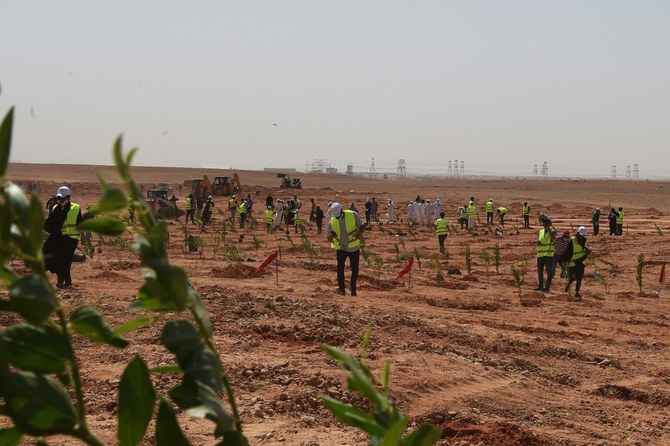
Saudi Arabia’s National Center for Vegetation Cover Development and Combating Desertification is at the forefront of implementing the Kingdom’s strategic goals outlined in Vision 2030.
“Forests play a crucial role in mitigating climate change,” Samir Malaika, assistant director-general of the general administration of forests at NCVC told Arab News. “Saudi Arabia’s dry climate and geography hinder its efforts to conserve forests and promote plant growth.
“With most areas receiving minimal rainfall, forests struggle to thrive. The escalating impact of climate change exacerbates environmental stressors, hampering forest growth and regeneration efforts.”
The NCVC aims to elevate living standards by reducing pollution and facilitating the restoration of degraded environments. It is also committed to building resilience against natural hazards and defenses against harmful pests that could pose risks to vegetation.
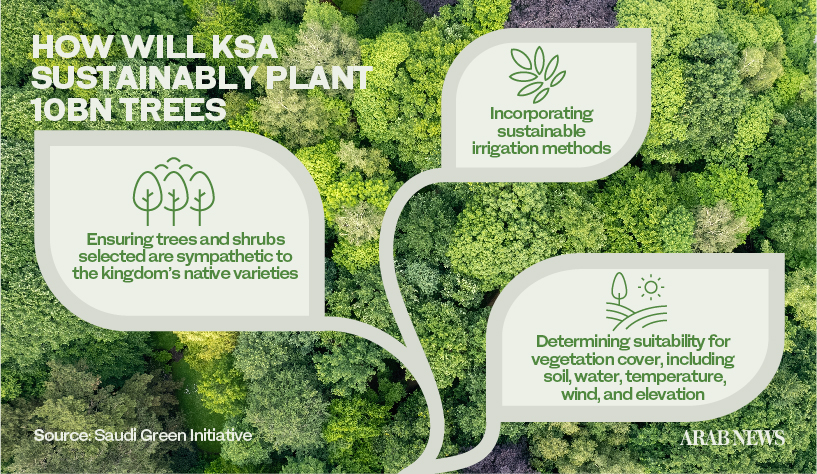
Simultaneously, it prioritizes the sustainable development of the Kingdom’s natural resources. With seven ongoing initiatives, it aims to ensure the responsible and lasting utilization of resources in line with the nation’s sustainability objectives.
Among the center’s key initiatives under the Saudi Green Initiative is a scheme to plant some 10 billion trees — representing a significant step in the Kingdom’s reforestation effort.
The initiative for forest management and sustainable development by 2030 underscores a long-term commitment to nurturing and preserving woodland environments.
The phased approach to preserving and restoring vegetation in pasture areas reflects a strategic focus on addressing the specific ecological challenges faced by different ecosystems.
Opinion
This section contains relevant reference points, placed in (Opinion field)
Furthermore, the initiative for developing vegetation and infrastructure for 50 national parks highlights the importance of creating protected natural spaces while promoting biodiversity and ecotourism.
Moreover, the initiative to plant 7 million wild trees in royal reserves demonstrates a targeted effort to enhance the natural habitats within these pristine areas.
Engagement by the public and private sectors in vegetation development and combating desertification underscores the collaborative approach needed in order to achieve sustainable environmental goals.

By harnessing the collective resources and expertise of various stakeholders, these initiatives aim to create a resilient and thriving ecosystem that benefits both present and future generations.
According to Malaika, Saudi Arabia boasts a forest coverage spanning approximately 2,768,050 hectares, primarily concentrated in the southern and southwestern regions, along riverbeds, and on the coastlines of the Red Sea and the Arabian Gulf.
These forest ecosystems are categorized into three primary types: mountain, valley, and mangrove.
Mountain forests
Mountain forests are predominantly located in the region spanning the Hijaz Mountains in Taif to Jazan in the south. These areas have neutral soil acidity and receive the highest rainfall and humidity levels, particularly evident in the southwest with denser forest cover.
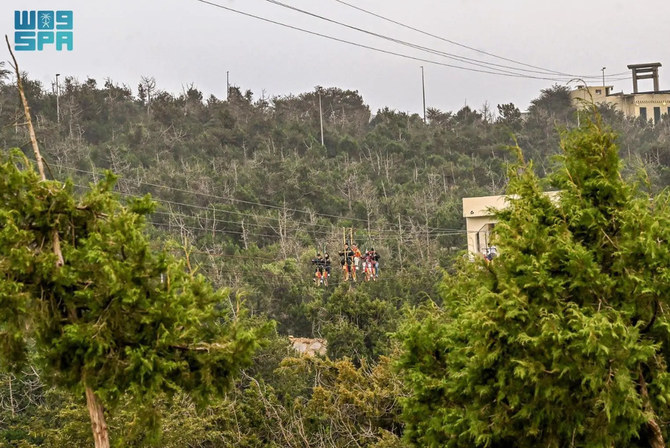
Forests are made up of several Juniperus plant species, typically found at altitudes of 2,000 meters and above. Additionally, Olea chrysophylla forests, characterized by wild olive trees with golden leaves, thrive at altitudes of 1,500 to 2,000 meters.
At lower altitudes, between 1,000 to 1,500 meters, Acacia plant species dominate the landscape.
Notably, terraced agriculture is a common feature of mountainous regions, facilitating crop fruit tree cultivation while aiding in water retention and soil protection. However, improper management can lead to land degradation, adversely affecting the surrounding forests.
DID YOUKNOW?
• Saudi Arabia is home to more than 63 unique ecosystems, ranging from mountainous regions to coastal lowlands.
• The Kingdom boasts a diverse array of wildlife, including 78 terrestrial mammal species and 499 species of bird.
• Coral reefs in Saudi Arabian waters host an impressive 266 species, contributing to marine biodiversity.
• With more than 6,500 species, Saudi Arabia’s invertebrate population testifies to the richness of its ecosystems.
• Saudi Arabia boasts three distinct forest ecosystems: mountain forest, valley forest, and mangrove forest.
Valley forests
Saudi Arabia’s topography features 179 valleys distributed across the country. Valley forests, mainly situated in semi-arid regions, are characterized by species such as Acacia ehrenbergiana, Acacia tortilis, Maerua crassifolia, several species of Commiphora, and Salvadora persica.
Additionally, oases and valleys are abundant with various Acacia species, Ziziphus spina-christi, Salvadora persica, Haloxylon persicum, trees, shrubs, and Hyphaene thebaica.
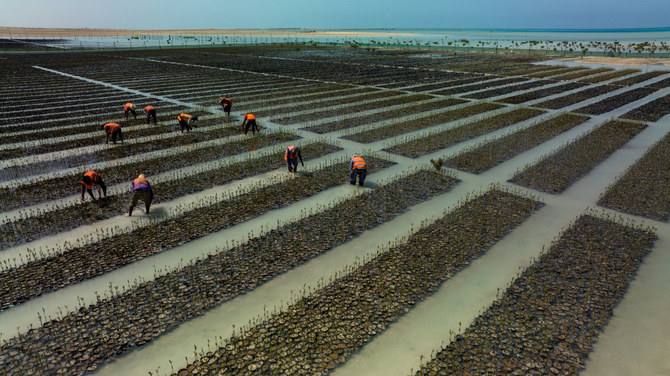
Mangrove forests
Mangroves and coastal ecosystems tolerant to saltwater are predominantly located along the Red Sea coast, with other stretches found along the Arabian Gulf coast.
Despite the lack of comprehensive forest data, studies indicate significant degradation of the mangrove ecosystem.
Avicennia marina is the most prevalent species in mangrove forests, with Rhizophora mucronata being less common.

Besides these natural forests, the Kingdom is also host to many urban and cultivated woodlands in its parks and residential neighborhoods, planted to provide shade, reduce temperatures, and beautify city streets.
Despite the Kingdom’s diverse ecosystems, it faces significant challenges in preserving and expanding its forests, including limited resources, poor local management, insufficient nursery production to meet seedling demand, a lack of awareness about dumping and unauthorized grazing, and other irresponsible human activities.
The Saudi National Center for Wildlife is working to protect, develop, and restore ecosystems and biodiversity around the Kingdom, in addition to addressing risks related to plant and animal life.
According to Abdulmanea Al-Qahtani, invertebrates department director at the NCW, the Kingdom has 63 distinct ecosystems, encompassing a diverse range of landscapes, including mountains, plains, deserts, valleys, forests, seas, wetlands, plateaus, coastal areas, and marshes, all teeming with biodiversity.
The Kingdom is home to 78 species of terrestrial mammal, 499 species of bird, 136 species of reptile, seven species of amphibian, and more than 6,500 species of invertebrate.
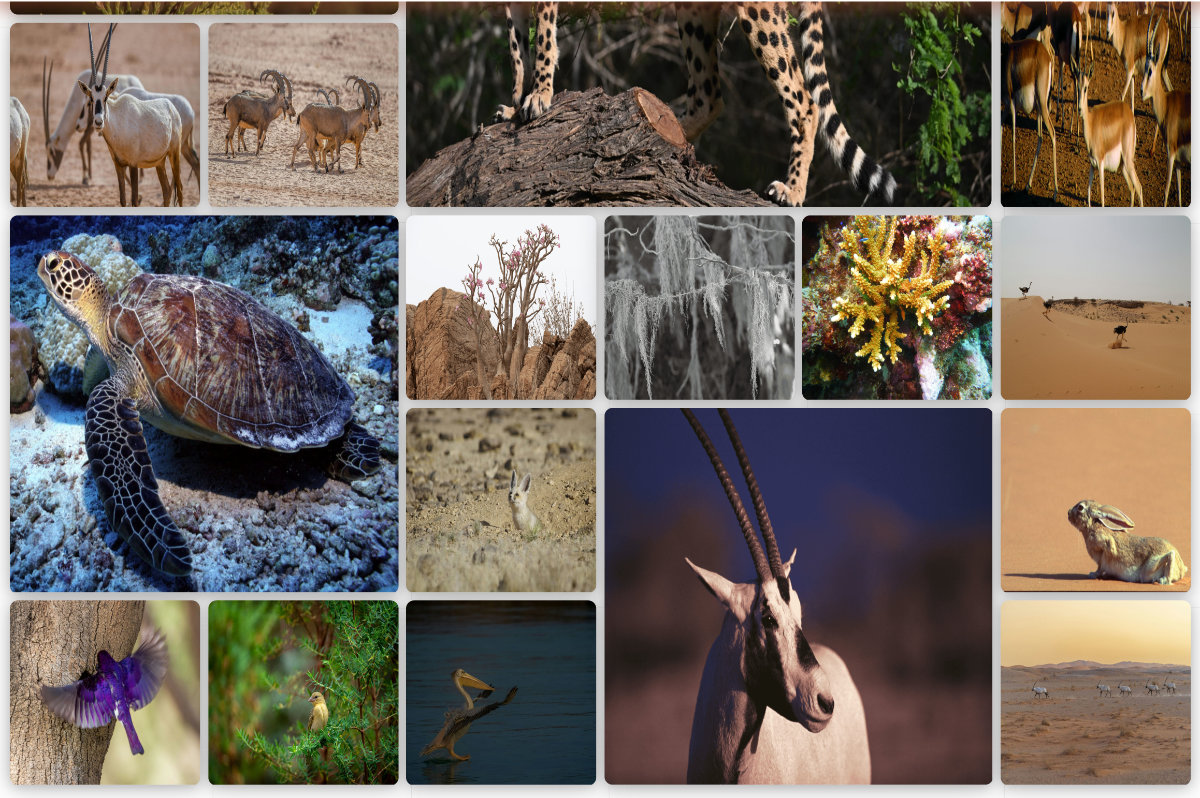
In its waters, the Kingdom also offers habitats to 19 species of marine mammal, eight species of freshwater fish, 1,248 species of saltwater fish, and 266 species of coral.
The Saudi Green Initiative, launched by Crown Prince Mohammed bin Salman in 2021 under the Vision 2030 framework, aims to tackle threats to this rich biodiversity and foster sustainable development.
Key goals include transitioning to a sustainable economy by reducing carbon emissions, boosting renewable energy production, and bolstering conservation efforts.
Additionally, the initiative aims to enhance environmental protection, promote green technologies, and create green jobs to drive economic diversification and growth.

FIFA orders legal review of Palestinian call to suspend Israel

- Israel has killed more than 35,000 Palestinians, according to Gaza health officials. Israel says its strikes are targeted at militants
BANKOK: Soccer’s world body FIFA ordered an urgent legal evaluation on Friday of a proposal by the Palestinian Football Association to suspend Israel over the war in Gaza, promising to address it at an extraordinary meeting of its council in July.
FIFA President Gianni Infantino took the decision at an annual Congress in Bangkok, where the PFA president made an emotional plea to delegates to hold a vote to suspend Israel from all club and national competitions, accusing it of multiple breaches of FIFA statutes.
The Palestinian proposal accuses the Israel Football Association of complicity in violations of international law by the Israeli government, discrimination against Arab players, and inclusion in its league of clubs located in Palestinian territory. The IFA rejected that.
The request for sanctions against the IFA comes two years after FIFA’s decision to suspend Russia from international competitions over its invasion of Ukraine.
HIGHLIGHT
The request for sanctions against the IFA comes two years after FIFA’s decision to suspend Russia from international competitions over its invasion of Ukraine.
“FIFA cannot afford to remain indifferent to these violations or to the ongoing genocide in Palestine, just as it did not remain indifferent to numerous precedents,” PFA President Jibril Rajoub said.
“How much more must the Palestinian football family suffer for FIFA to act with the same urgency and severity as it did in other cases? Does FIFA consider some wars to be more important than others and some victims to be more significant?“
Since an Oct. 7 cross-border raid by militant group Hamas that Israel says killed more than 1,200 people, the Gaza offensive has left more than 35,000 Palestinians dead, according to Gaza health officials. Israel says its strikes are targeted at militants.
Rajoub said 193 Palestinian players had been killed, football infrastructure destroyed, its leagues suspended and its national team required to play World Cup qualifiers abroad.
‘Cynical, political and hostile’
The proposal was sent to FIFA in March and added to the Congress agenda with the support of the Algerian, Jordanian, Syrian and Yemeni federations.
The Asian Football Confederation gave its backing on Thursday for action against Israel.
IFA chief Shino Moshe Zuares said the proposal was based on motives and ambitions that “have nothing to do with the spirit of sports or the FIFA value of separating sports from politics.”
“Today, maybe more than ever, I believe that football must be a key element in healing the fractures and the wounds, helping us and everyone to recover,” he told the Congress.
“Yet, once again, we are facing a cynical, political, and hostile attempt by the PFA to harm Israeli football.
“I am holding myself back and will not speak about the true motives out of respect for this institution,” he said.
Infantino expressed extreme shock over the Oct. 7 attacks and the offensives in Gaza and said due to the “obvious sensitivity of the issue,” independent legal experts would be brought in urgently to analyze the Palestinian allegations.
Those findings would be referred to the FIFA Council, its main decision-making body outside of the Congress, to convene an extraordinary meeting in July and take appropriate decisions, he said.
Protests against powerful group persist in Syria’s last major rebel stronghold

- Protests took place Friday in several areas, including the provincial capital of Idlib and major towns such as Jisr Al-Shughour, Binnish and Sarmada
- Officials at one hospital in Binnish said they had received 36 people who suffered bruises and tear gas inhalation
IDLIB, Syria: Members of a powerful insurgent group in Syria ‘s rebel-held northwest fired into the air and beat protesters with clubs Friday, injuring some of them as protests intensified to demand the release of detainees and an end to the group’s rule.
Protests took place Friday in several areas, including the provincial capital of Idlib and major towns such as Jisr Al-Shughour, Binnish and Sarmada.
They came days after Abu Mohammed Al-Golani, the leader of Hayat Tahrir Al-Sham, or HTS, described the demonstrators as anarchists and told dignitaries in Syria’s Idlib province to persuade them to stop protesting.
The protests, which are calling for the ouster of Al-Golani, broke out in late February following the death of a member of a rebel faction, allegedly while being tortured in a jail run by HTS, which previously had links to Al-Qaeda. Since then, HTS released hundreds of detainees, but many remain in jails run by the group’s so-called General Security Agency.
“I came out against injustice. We don’t want Al-Golani and we don’t want the security fist. We want the prisoners of opinion to be out” of jails, protester Mazen Ziwani told The Associated Press.
Officials at one hospital in Binnish said they had received 36 people who suffered bruises and tear gas inhalation.
After more than 13 years of civil war and more than half a million deaths, Idlib is the last major rebel stronghold in Syria.
On Tuesday, HTS members attacked protesters with clubs and sharp objects outside a military court in Idlib city, injuring several people.
Anti-HTS sentiments had been rising since a wave of arrests by the group of senior officials within the organization, which was previously known as the Nusra Front, when it was Al-Qaeda’s branch in Syria, before changing its name several times and distancing itself from Al-Qaeda.
Over the years, Al-Golani’s HTS crushed many of its opponents to become the strongest group in the rebel-held region that stretches to the western parts of Aleppo province.
The Britain-based Syrian Observatory for Human Rights, an opposition war monitor, said HTS fighters closed major roads leading to Idlib city Friday to prevent the demonstrators from reaching the provincial capital.
Over the past years, HTS has been trying to distance itself from Al-Qaeda and market itself as a more moderate Syrian opposition group after years of strict religious rule.
In 2017, HTS set up a so-called “salvation government” to run day-to-day affairs in the region. At first, it attempted to enforce a strict interpretation of Islamic law. Religious police were tasked with making sure that women were covered, with only their faces and hands showing.
The police would force shops to close on Fridays so that people could attend the weekly prayers. Playing music was banned, as was smoking water pipes in public.









